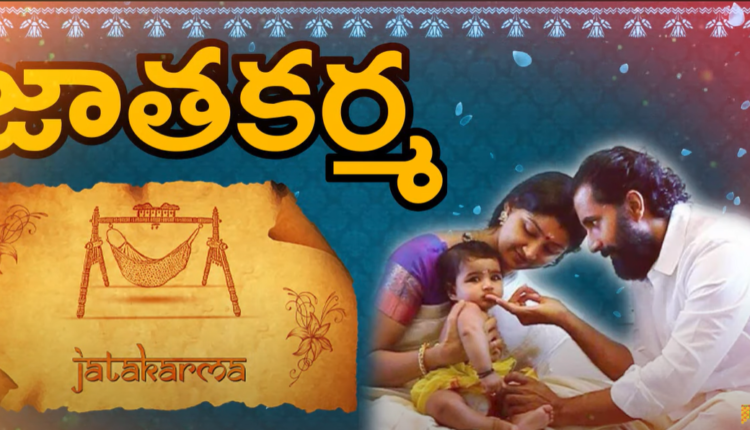Jatakarma : A Significant & Sacred Ritual For Everyone
Jatakarma : The Sacred ritual Marks the first significant passage for a being who has spent ten months in their mother’s womb. This auspicious ceremony is performed with the utmost care and attention, focusing on the well-being of the newborn child. Cleanliness and purity play a vital role in this sacred rite, as it sets the foundation for the child’s health and future.
According to the teachings of Dharma Shastra texts, Jatakarma should ideally take place upon hearing the joyous news of the baby’s birth, even before the conception itself. It is believed that the father should perform this ritual before the cutting of the umbilical cord, as it signifies the beginning of his parental responsibilities. Thus, the significance lies not in the alignment of specific celestial factors such as Varsha (season), Tithi (lunar day), Masa (month), Nakshatra (constellation), Yoga, Karma, Lagna (ascendant), or Bhava (house) but rather in the purification, peace, and future blessings it invokes.
Jatakarma & Several Acts
Jatakarma encompasses several sacred acts performed before the umbilical cord is cut, serving to cleanse the child of any impurities from the womb. A delicate golden thread is used to offer ghee and honey, symbolizing mental strength and intelligence, to the newborn’s mouth. This act holds great significance as it emphasizes the importance Hindus place on nurturing a child’s intelligence. It is a responsibility that both parents share, and it marks the beginning of their journey as guardians.
In these rites, the father touches the child’s tongue with various substances, starting with flour, rice flour, honey, and ghee rubbed with gold. In this moment, the father recites a powerful mantra, invoking blessings upon the child’s intellect and well-being. The mantra beautifully expresses the wishes for the child’s memory, resilience, and intelligence to flourish. It is a process of bestowing wisdom and nurturing the child’s intellectual potential.
Overall, Jatakarma is believed to eliminate any imperfections or doshas associated with the parents’ bodies. Within 36 hours of the child’s birth, the father gazes upon their precious face, after which he takes a purifying bath and places the child gently on a bed of rice. With heartfelt devotion, the father bows down in surrender, offering prayers for the child’s long and prosperous life, accompanied by charitable acts and the recitation of Rigvedic mantras.
Should circumstances prevent the ritual from taking place within the designated timeframe, it must be postponed until the impediment is resolved. In our country, it is customary to observe a period of ten days known as Purudu, during which the child is lovingly cared for. On the eleventh day, a special bathing ceremony takes place, marking a joyous celebration of the infant’s growth and well-being.
Through the rich traditions of Jatakarma, we witness the deep reverence Hindus hold for the intellectual development and welfare of their children. This sacred rite serves as a testament to the values of purity, blessings, and the profound bond between parents and their newborns, laying the foundation for a promising future.
Also Read : Puriti Snanam : An Important Ceremony Of Sacred Bath For The Women

